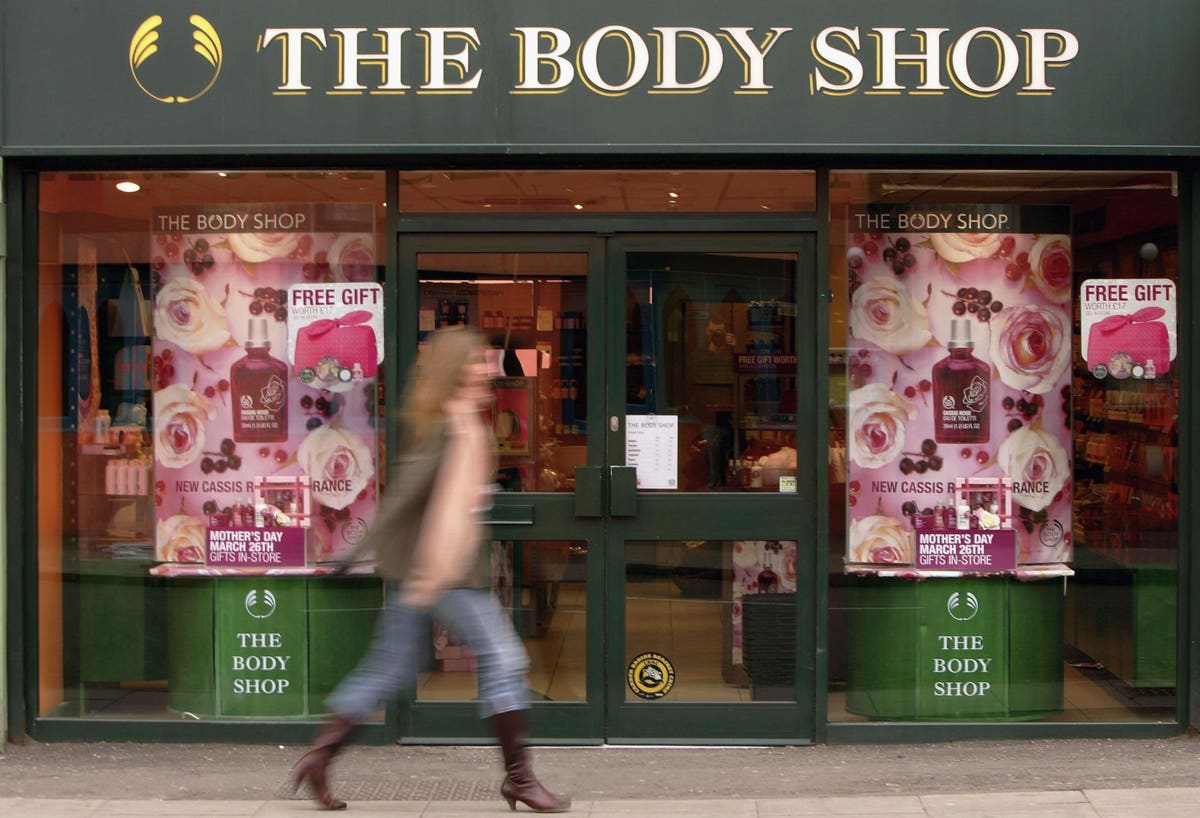For those who don’t believe that individuals can change the world, the rise of The Body Shop under the late Anita Roddick should disprove such notions.
While the world has somewhat caught up with eco-pioneering chain and the guiding principles of its mercurial co-founder, the U.K.-based chain has been perhaps the most influential retailer in the ethics of beauty and skincare.
Roddick championed opposition to animal testing and made The Body Shop the embodiment of ethical consumption at a time when such topics were given scant thought by most businesses and consumers.
Formed in 1976, she built the company from a single store in the south of England into a global powerhouse and in doing so reshaped consumer expectations around the environment and animal welfare.
But more recent years have been less forgiving. Roddick sold the business to L’Oreal in 2006 and sadly passed away the following year, aged just 64, and since those heady days of global expansion, its path has been fraught with challenges. Right now it is readying itself for another owner as private equity firms circle.
In the past week Aurelius Group, which owns businesses including the U.K.’s Lloyds Pharmacy drugstore chain, is believed to have joined a growing list of bidders for the company.
Private equity firm Epiris and Elliott Advisors, the owner of a bookselling group that includes Barnes & Noble
BKS
The Body Shop Struggles
Although The Body Shop has struggled for some years, it retains a prominent presence domestically and as an international brand and, under the auspices of Brazilian group Natura &Co, it has attempted to reposition itself along the lines of its founding, ethical and cruelty-free principles.
Part of the Brazilian group since 2017, The Body Shop employs around 10,000 people and operates circa 3,000 stores in 70 countries.
Before Natura’s acquisiton it was owned by cosmetics giant L’Oreal, in what was largely seen as an ill-fitting tenure, with the corporate philosophy of the cosmetics behemoth sitting uneasily with the ethical-led approach of The Body Shop.
Natura &Co, which acquired the retail chain from L’Oréal in 2017 for $1.04 billion, has appointed Morgan Stanley
MS
Now valued at just $492 million, the decision comes after Natura sold its Aesop business to L’Oreal (somewhat ironically) for $2.4 billion in April of this year as it said it was “focusing on strategic priorities”.
Since becoming part of Natura &Co in 2012, Aesop has increased its points of sale from 52 to 395.
Natura &Co
NTCO
At the time the company maintained that The Body Shop could be returned to growth, while it also wanted to refocus Avon International’s footprint.
Natura Looks For Profitability
Natura &Co has grown rapidly in recent years through high-profile acquisitions bu the beauty group has been hit by six consecutive quarters of losses and in a bid to return to profitability, has been seeking to deleverage.
In April, The Body Shop chief executive David Boynton stepped down from his role after five and a half years at the helm, with Natura &Co board director and former Coach boss Ian Bickley, who is still in situ, replacing Boynton on an interim basis.
Boynton was largely credited as instrumental in steering the retailer back to its founding tenents and he had previously served as chief executive of upscale shirt maker Charles Tyrwhitt and had held senior roles at L’Occitane and A.S Watson.
The Body Shop was founded in 1976 by the Roddicks and co-founder Anita became an emblem of rising female entrepreneurship and power in the boardroom, but in more recent years it has seen its ethical credentials challenged both by many new brands and established rivals.
Read the full article here





